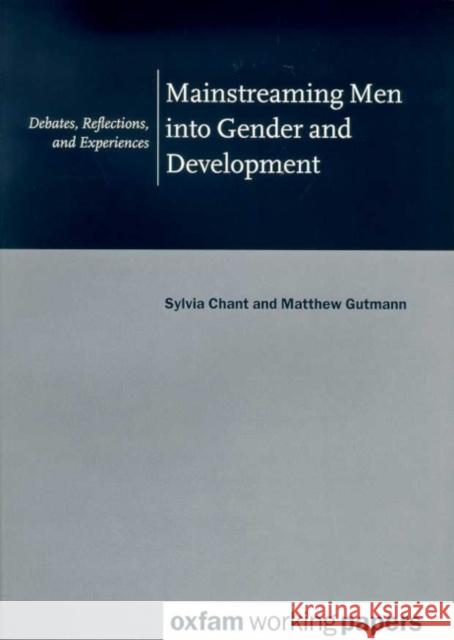Mainstreaming Men Into Gender and Development » książka
Mainstreaming Men Into Gender and Development
ISBN-13: 9780855984519 / Angielski / Miękka / 2000 / 90 str.
The late 20th Century saw -men and masculinities- become an increasingly widely-debated theme in gender and development circles, as well as in the wider world of the media, where there is much talk of -men in crisis-, -troubled masculinities-, and 'men at risk'. While the 1970s and 1980s were marked by an unprecedented focus on women among activists, scholars, practitioners, and policy-makers, a perceptibly larger share of the spotlight on gender has since fallen on men. Although women continue to bear a disproportionate share of material, social, and civil disadvantage, trends identified in this book suggest that an increasing number of men, especially among the young and poor, are subject to mounting vulnerability and marginalization.
This book is the result of research commissioned by the World Bank. Its primary focus is on incorporating men in gender and development interventions at the grassroots level. It begins by identifying the rationale for the study of, and key issues surrounding, 'men and masculinities' in gender and development. It draws attention to some of the key problems that have arisen from 'male exclusion', as well as to the potential benefits of - and obstacles to - men's inclusion. The book then moves on to explore how far 'men in development' has been a feature in the practices of development organizations. Drawing on consultation with over 30 NGOs in the UK and USA, current 'in-house' approaches to gender and development are reviewed, and the authors explore the extent to which men are actively engaged at the policy-making, operational, and grassroots levels. The book concludes with suggestions on the ways in which gender and development policy might realistically move towards a more gender-balanced, male-inclusive approach.











